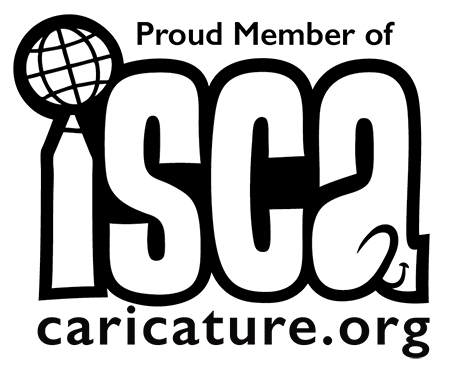Professionalism and Freelancing

I’m in Portland right now doing a workshop, and arrived early to do a podcast and a couple of interviews for Wacom who is hosting the class at their “Experience Center”. During the podcast we discussed some of the other aspects of freelancing besides the art part of it. One of those aspects is “professionalism”, the lack of which is something that can greatly hold back, or completely derail, one’s career. By “professionlism”, I mean things like meeting deadlines, following through on promised stages of completion of a project, working well with art directors, etc.
Don’t get me wrong, the art is job number one. If you don’t do good work, it does not matter how well you meet deadlines or work with art directors. You have to create work that appeals to clients and that they are willing to pay for. However, the world is full of very talented artists who work stocking shelves at the grocery store or making chai lattes at Starbucks because they cannot do that other part of the job.
That discussion reminded me of a job I got early in my freelancing career because another artist had a problem with that “professionalism” thing. I almost turning it down because I was not sure ethically if I should do it, considering the circumstances.
The client was a company called “Business and Legal Reports”, and as the name suggests they usually designed and printed business and legal reports. They had started what would be a series of comic book-like educational booklets meant to be sold to schools with anti-drugs, anti-smoking, etc. subjects.

The ethical dilemma was that I was not asked to create this comic from scratch. What I was being asked to do was finish a partially pencilled and laid out comic already worked on by a previous illustrator… IN HIS STYLE. This I was not too keen on, and I tried to convince the client to let me re-draw the several already completed pencilled pages in my own way, then continue to draw the other pages in my own style.
This they balked at, partly because the timeframe we had was extremely tight. The reason I was being asked to do this is that the other illustrator had apparently dropped the ball rather badly and put them so far behind that they had to fire him and this was a bit of an emergency job. I don’t know the name of the illustrator nor the specifics of what happened, but the client seemed very put off by the artist’s performance, lack of progress, constant promising of delivery and then excuses as to why it was not done, etc. Eventually the deadline was upon them and both parties agreed to move on with other plans.

In the end I decided that, given the original artist had lost the job via his or her own choices and created this situation, taking over the job was not an ethical no-no. I was disappointed that I had to ape his style of drawing, but the client insisted saying the style had been approved already and to redo that process at this time was impossible. So, I accepted and completed the job. This led to my doing, in my own style, several other similar booklet comics for the same company, and they because a steady clients for a year or two.
The main point this illustrates (pardon the pun) is that professionalism counts. The original illustrator may have had serious personal reasons why he or she was unable to fulfill their obligations, but regardless it resulted in not only losing the job, but also the opportunity for more work with that client. Likely others as well… as I have said many times art directors are the source of word-of-mouth work but that applies in both directions. Do a great job for one and they will recommend you to others, but drop the ball and they will pass that along as well. As I remember those jobs were very well paying.
By the way I did this job the old fashioned way, using a film-pos and acetate overlay, then watercoloring and airbrushing the color. Subsequent booklets I did for them, this time in my own style, they insisted be done digitally (this was 1992 remember) so I ended up buying a Mac and doing them as vector art in Adobe Illustrator! If I can ever find any of that old stuff, I’ll post a story about how I did that.
Comments
Tom's Newsletter!
Sign up for Tom's FREE newsletter:
Categories
- Classic Rock Sketch Series (60)
- Daily Coronacature (146)
- Freelancing (173)
- General (1,633)
- Illustration Throwback Thursday (107)
- It's All Geek to Me! (53)
- Just Because… (1)
- MAD Magazine (899)
- Mailbag (691)
- Monday MADness (437)
- News (1,038)
- On the Drawing Board (160)
- Presidential Caricatures (47)
- Sketch O'The Week (811)
- Stuff from my Studio (21)
- Surf's Up Dept. (29)
- Tales from the Theme Park (17)
- Tom's MADness! (132)
- Tutorials (18)
- Wall of Shame (17)










How do you seperate your personal life and family problems that interfers with your professional artistic life that may affect dead line or completing a job or project?
This would make a good mailbag question. Check back next week for the answer!